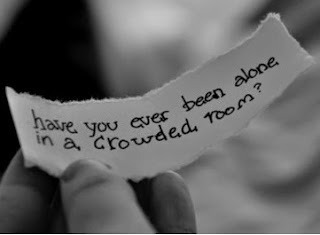This piece was originally published by CrownHeights.Info on Hosha'ana Rabbah 5783
The good rabbi made it sound so simple.
We’d been sitting in the Sukkah and Farbrenging. There’s something special about Sukkos Farbrengens.
The guest rabbi explained how Sukkos is a natural outcome from the Avoda of Rosh Hashana and Yom Kippur.
When we surrender to Hashem on Rosh Hashanah, and reveal our Yechida on Yom Kippur, then we are naturally happy on Zman Simchaseinu, and able to unite together with our fellow Jew in the unity of the Sukkah and the Four Minim.
True inner joy, and the ability to really connect with others, he said, are natural results of focusing on our G-dly Nefesh Hoelokis rather than our selfish Nefesh Habahamis.
Although the good rabbi made it sound simple, it didn’t sound easy, or realistic. Then, I remembered a scene from Simchas Torah years ago…
In the hours and minutes leading up to Hakafos with the Rebbe, 770 was literally “Oif Tishen Un Oif Benk”, a somewhat organized chaos. Throughout the Shul there was an array of “places”, including “pyramids” made of tables and benches and milk-boxes.
Space was tight. One person getting up on one end of a bench could cause someone at the other end to fall off. A latecomer hoping to still make it to his place on an upper level of the “bleachers” needed the help of his friends up there extending their arms to him, or those below to heave him upward, or both.
Chains, ropes, and Gartels would often be used as lifelines.
There was a palpable excitement and joyous anticipation of what was to come that night.
And yet, beneath the surface, there was also a certain tension, especially if one had not yet secured a good spot, or if the spot one had found was not considered secure, or secured…
Inevitably, a “territorial dispute” might erupt here or there, usually resolved in a mostly peaceful manner, louder voices of a group often as effective in scaring away a would-be “interloper” as a pat on the cheek, or slap on the back… (Chassidim, ingrained with the values of “Shleimus Haaretz” were sure to stand their ground…)
At this most joyous of times, there were individuals feeling downright miserable, while “allied forces” stood strong to protect their “land”, holding on dearly to what they had, not giving an inch, certainly not to an “outsider”…
And then, as the Rebbe entered, something changed. A miracle happened.
As the Rebbe turned to the crowd or danced his Hakafah, we all became part of one rising tide of Chassidim. One wave of his holy hand, and we jumped and danced, and were brought into a different world, a truer reality.
Suddenly there was more space available in the heavily fought for “turf”.
Here, give me your hand, I’ll help you up. You can squeeze your tippy-toe onto the square inch of space near my toe. Or on my toe. Quick, jump up here and stand in “my” place for a bit so you can also see the Rebbe, and perhaps see that he sees you as well…
As we stood in the Rebbe’s presence, we suddenly had place in our heart, and with an open heart gave up some of our own space to others who were suddenly not so “other”.
It may not always be easy, but it is doable. It is realistic. It’s been done before.
When we face challenging situations or people throughout the year, may we have the memory, wisdom, and strength to tap into the energies of Tishrei.
Especially in this year of Hakhel, may we remember who we are, why we’re here, and before whom we stand, thereby enabling us to hold hands, join forces, reach out and raise up, until we all together are united once again with our Rebbe, celebrating the ultimate Simchas Torah – the complete and true Geulah – together.

